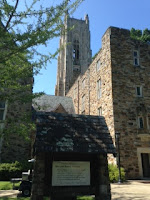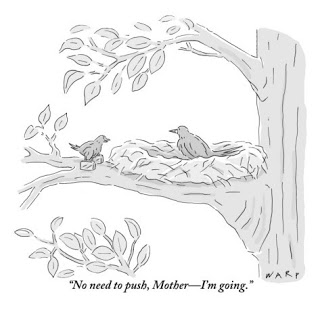The 9th graders were supposed to be "bonding," building a body of intense communal experience and mutual trust to solidify their shared sense of themselves as uniquely in a class of their own. The classy class of '17.
Didn't work, she says. "There was no 'bonding,' there were just tics and bee stings and all the girls were getting their periods and all the boys were weird..." Reality can be harsh. But I'll bet more bonding went on than she yet realizes.
Reality. What a concept. Her movie night request, to break the media-starvation retreat diet, was The Great Gatsby (Leo & Jay-z version). Pretty unreal. But I think I get it. "Born back ceaselessly into the past we beat on..." Look for the green light. Go, man. Hope springs eternal, even if your're funding it with gangsta capital.
But what is real? The philosophers I like most are the ones who say reality begins with experience. That's why WJ called the defense of experience against philosophy (what a thing for a paid professional philosopher to say!) "my religious act." But sometimes it takes a thief to catch a thief, right? And dogmatic philosophers, no less than dogmatic religionists and ideologues in every domain, steal the meaning of personal experience. Good philosophers defend the meaning of personal experience, in fact consider it constitutive of its own tiny part of the big total picture. Part of reality.
The opposite of experience in this context is not "reality," then. It's dogmatism, a priorism, ideology, close-minded self-certainty, "blindness," refusal to listen or hear...
These reflections may be useful in addressing some students' overt and conspicuous religiosity in the philosophy classroom, which I sometimes suspect has been coached from home or church or even some other corner of the university. ("Take philosophy, but stand up and witness to it.")
My quarrel with personal professions of religious faith in philosophy class is the same as my rejection of appeals to authority generally. If you believe X because dad or preacher or bible or teacher or tradition or a little voice told you so, that's unphilosophical. If you believe it because you experienced something that you think supports it, and are prepared to discuss that experience and that belief, then we can reason amicably together.
As Socrates said to Euthyphro,
And as "Mo" said to "Jesus,"The point which I should first wish to understand is whether the pious or holy [or good] is beloved by the gods because it is holy, or holy because it is beloved of the gods.
If something is good because God commands it, then morality is totally arbitrary-God could make anything good just by saying so.“Reference to God does not help in the least to ground the objective truth of morality,” whichever of the nine billion or so names of god you invoke.
[full text…Last Days of Socrates... Woody's Apology]
The only condition for the successful conduct of the kind of co-philosophizing we try to do in my classes is not to check your religion entirely at the door, or your irreligion, or any other heart-felt markers of who you think you are. It's just that you agree patiently to listen to others when they describe different experiences, different lines of thought and belief from yours. Listen. Then speak. Ask questions. Then listen again. Take some notes. Give it all some quiet attention. Give yourself permission to think. Consider. Be prepared to draw a different conclusion than you drew yesterday. At least be prepared to think better of those who don't see the world the way you do. Philosophize, don't dogmatize.
Sound easy? No, not really. But it can be fun. It can open your eyes like nothing else. As Jennifer Hecht says, we philosophers are "convinced that thinking about these big ideas, just the pure process of mulling them over, does a person a world of good."
And, "brave thinking about truth is the secret to happiness."



.JPG)















